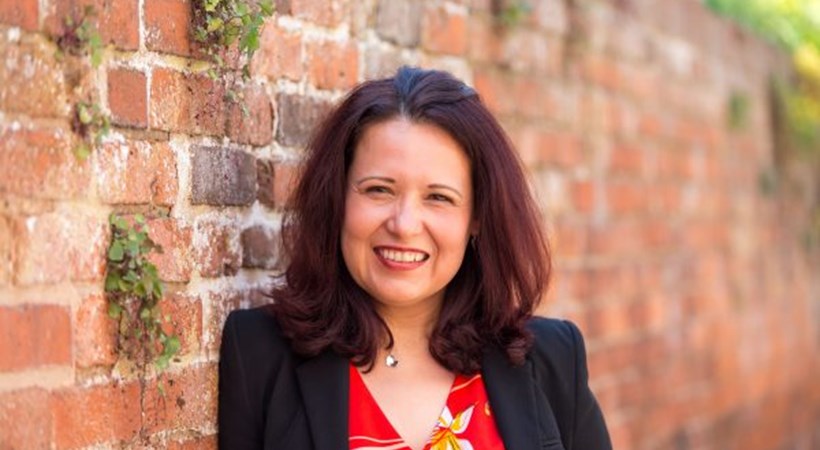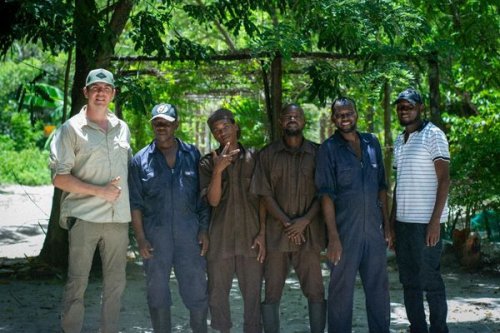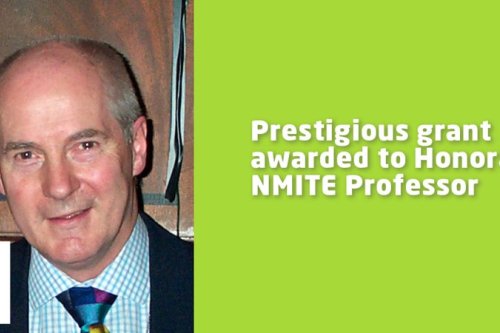Professor Elena Rodriguez-Falcon is President and Chief Executive at the New Model Institute for Technology and Engineering.
Before that Elena was Professor of Engineering at Sheffield University whilst leading various strategic priorities. Elena has received numerous awards for her work on education and diversity and is Principal Fellow at the HEA and Fellow of the IET and CMI.
Tell us a bit about yourself, background and your current role
I’m originally from Monterrey a very industrial city in Mexico. I was one of the first members of my family to go to university and therefore I didn’t have role models, only a distant relative who was a cardiologist. And so initially my inspiration or my aspiration was to be a doctor. Unfortunately, I wasn’t very good with blood, so that didn’t work out. So, when I was due to decide what degree to choose, I looked around and I thought, “What’s going to get me a good job.?” So, given the fact that I come from an industrial city, I decided to study mechanical engineering.
That was the why. The how I actually fell in love with our profession and then with education was due to many other things including the fact that through my career I met some inspirational people, including people who have very severe disabilities, who helped me to understand the value of engineering. I came to the UK wanting to improve my training – both in business and engineering – and I found that the way I had learned in Mexico as an engineering student wasn’t very different to the way people learned in this country.
I found myself with an opportunity to join the University of Sheffield where accidentally I became an educator finding finally my real vocation, my real passion. And so, brought these two things together: the potential of engineering and love for education.
But I also wanted to help and get my students to not just be students but also true engineers by the time they graduated. I brought problem-based learning into the classroom. That worked very well and gave me a reputation in this area which then attracted the interest from NMITE, a project where we are aspiring to be a new provider of higher education that aims to deliver a transformational programme, one that allows engineers, aspiring engineers to be just that, engineers.
I joined as a Chief Academic Officer, but circumstances changed and I took the role of Chief Executive Officer last year (2018), which I’ve been doing now for more than a year and a half. It’s a challenging role, but an extremely worthwhile project to work for.
Did you ever sit down and plan your career?
No, absolutely not! My career has been one happy accident after another. I don’t know whether it is skill or luck but I have been able to spot opportunities and take them. I do not fear failure as much as other people do and that’s possibly because I had a boss who helped me develop that confidence in taking risks. So, no, I haven’t planned my career. I have spotted opportunities and taken them.
But I think the one thing that I would say is that in order to progress in your career, planning is a good thing, and if I had done more, maybe I would have gone faster. But also what I have done, and I would advise anyone to do, is to actively seek mentors, people who can help you understand how to move through the ranks or your aspirations, who can champion you, who can coach you, who can maybe just support you when it’s a bit hard. So, mentors all the way.
Have you faced any career challenges along the way and how did you overcome these?
There was a point in my academic career where I, not being a traditional academic, realised that I wasn’t going to be able to progress as much as other academics. When I realised that I had reached the ceiling in academia because of my different background.
There was a period between 2007 and 2012 where I was determined that my practitioner background and my sort of different background to the traditional academic was not going to stop me from becoming a full professor in academia. So, I set out to become a professor. And that’s perhaps the only time that I planned what I had to do. I looked at the criteria. I realised that the criteria wasn’t right for me and I worked with the university to develop criteria that helped individuals like myself with different backgrounds to be able to progress in our areas.
I overcame this by being really very clear about what I wanted to achieve, bringing different stakeholders to the table, i.e. the human resources department, my heads of department, my mentors, all the people in the same situation as me and we put together the argument and a plan to overcome those challenges. I was determined to not let failure affect me because I tried time and time again to get a promotion until I finally cracked it. We found the best way to change the system, to recognise educators who were specialists in education but not necessarily in research.
What one thing do you believe has been a major factor in you achieving success?
I would say determination, perseverance. I don’t give up no matter how hard, how difficult, how painful, how tiring, how much work you need to do, how scary it is. I keep going. I think perseverance and resilience are some of the most important things in any aspect of life. But if I were to just bring it down to one thing, it would be perseverance.
What top tips would you give to an individual who is trying to excel in their career in technology?
My top tips would be the same for any individual, in technology or not. The first came from my parents. Work hard. Never treat anyone badly. Be kind to others, but never allow anyone to treat you badly.
The second from a previous boss. Make mistakes, make as many as you can. Don’t be afraid, just never make them again. Take risks.
And the third is something someone said to me just recently that the opportunity of a lifetime has to be taken during the lifetime of the opportunity.Alongside those, ask for help. It is super important to ask for help. Be grateful, be gracious. Get yourself a coach which can be very helpful in many ways. And ask yourself, “What’s the worst that can happen when you are trying to do something and trying to excel in your area of expertise?”
Do you believe there are still barriers for success for women working in tech, if so, how can these barriers be overcome?
I think there are two types of barriers. There are the barriers that exist in processes and systems where there is still bias towards different groups and I think many organisations are working hard to remove those barriers. Some of this is process driven such as how you advertise for roles and what kind of criteria you have for promotion, how you take into account various types of care and responsibilities that individuals have, not just women. I think there are also the unconscious biases of individuals and those are difficult to remove because they require training, they require self-awareness and having real processes and systems in place to call these out when they happen.
There are also barriers that we ourselves impose on our own careers. Namely not applying for promotion because you don’t think you are ready yet, whilst our counterparts would apply for promotion even when they are far from being ready. Being brave, being courageous, having the determination to try, even if you think it’s going to go wrong, and those are self-imposed. They are the ones that require us to be trained in being able to take risks, being able to learn from failure and being able to have those fierce conversations with our organisations, with our peers, and to know that that makes you a better professional rather than a bad person, for example.
What do you think companies can do to support and progress the careers of women working in technology?
I think it is important that we all, not just companies, educators, government, have a huge, huge, huge permanent campaign, to raise awareness about the power of engineering and technology. We have to be talking about, we have to show what technology can do to help people and what it can do to revert the problems that we have caused to the world ie Sustainability, climate change, all of those things is so important that we really, really get through to families, parents, young children, teachers and so on. So that when it comes to young people making choices about their lives and their careers, they have informed decision making about what they are going to do later on in life.
Success breeds success. The more young people and young women who do the right GCSEs, the right A levels, will mean more women in higher education. If 50% of the population are women, 50% of the engineers should be women, simple as that. The more women you have, the more inequality will be banished from our systems because we will have the right expertise in place to identify where the barriers are, what kind of systems need to be put in place to enable progress and success of everyone. And I think that that’s going to make a big difference.
Even though I have lived in England for such a long time I still find the A level system peculiar. It forces young individual to make decisions very, very early, decisions about whether to be an engineer or a medical doctor or whatever it is, have to be made far too early in our lives. Given the that things are changing and we are going to change careers five or six times in a lifetime or even more, I don’t think it’s reasonable to have a system that forces you to specialise so early on. NMITE’s future entry requirements will support this more flexible approach – whereby GCSE (or equivalent) Maths and English at Grade 6 will be compulsory, but pigeon-holing young people according to specific A Level requirements will be avoided.
There is currently only 17% of women working in tech, if you could wave a magic wand, what is the one thing you would do to accelerate the pace of change for women in the industry?
Remove A levels and let people learn about the wider topics that are required for life. So, when they come to make a decision, they are wiser, older in terms of understanding of what a discipline entails. And ensure that education is more inclusive, that education is reflective of what happens in society and perhaps it’s time to revolutionise what education is or what it reflects.
What resources do you recommend for women working in tech?
Getting to meet people, talking to people, learning from people is my preferred option. I actively engage with different mentors, with different colleagues. I love networking because that’s where opportunities arise and you can spot them and take them and people can give you advice. And make sure you are memorable and that you communicate what you are doing. Shout about what you have done and what you have achieved and don’t be embarrassed for doing it. Someone said to me once, “If you don’t communicate it, it doesn’t exist.” And they were absolutely correct. Whether you use podcasts or you go to conferences or you study from books or websites, it doesn’t matter. But make sure that whatever you achieve, communicate it.







